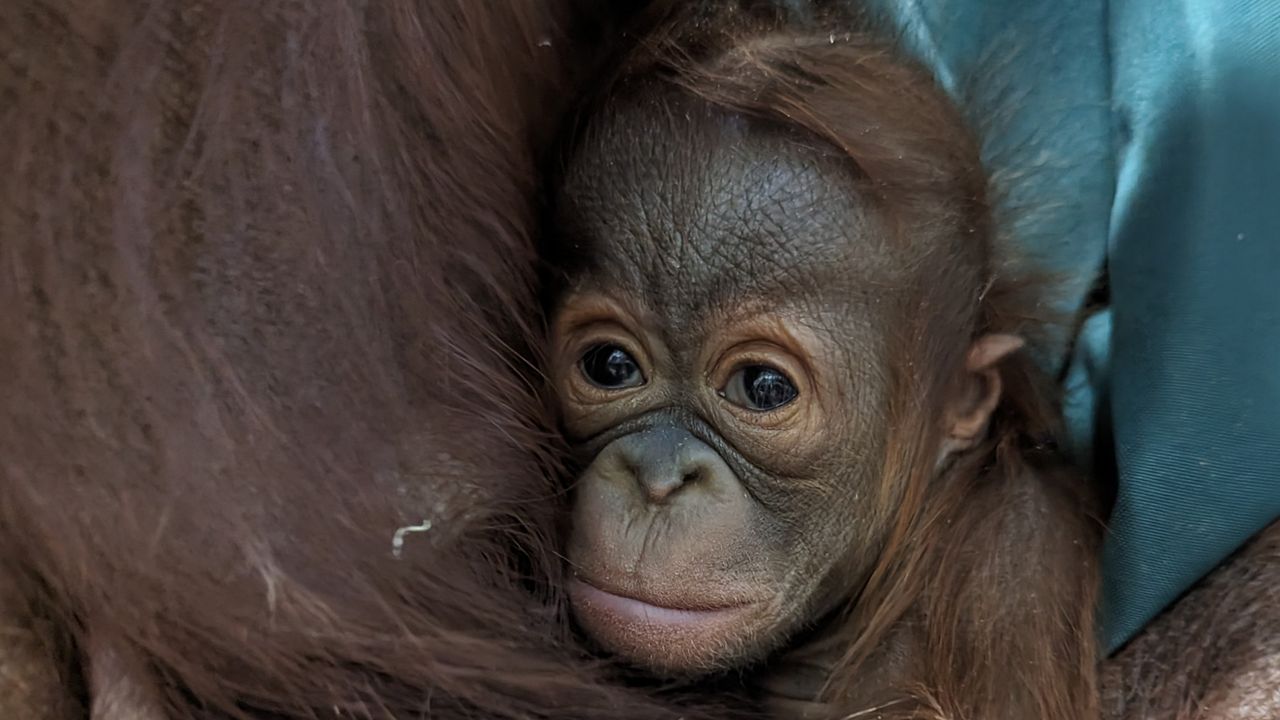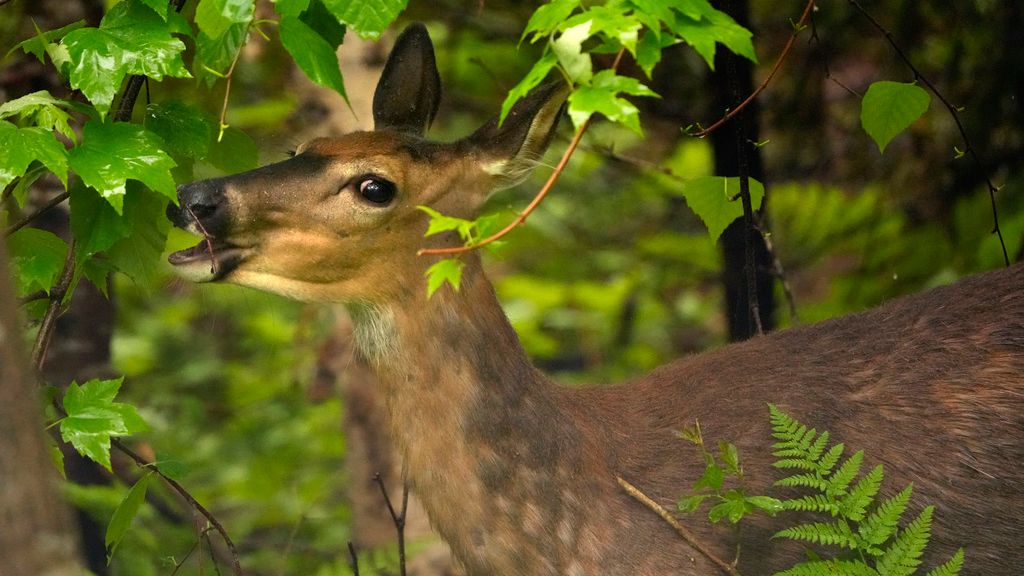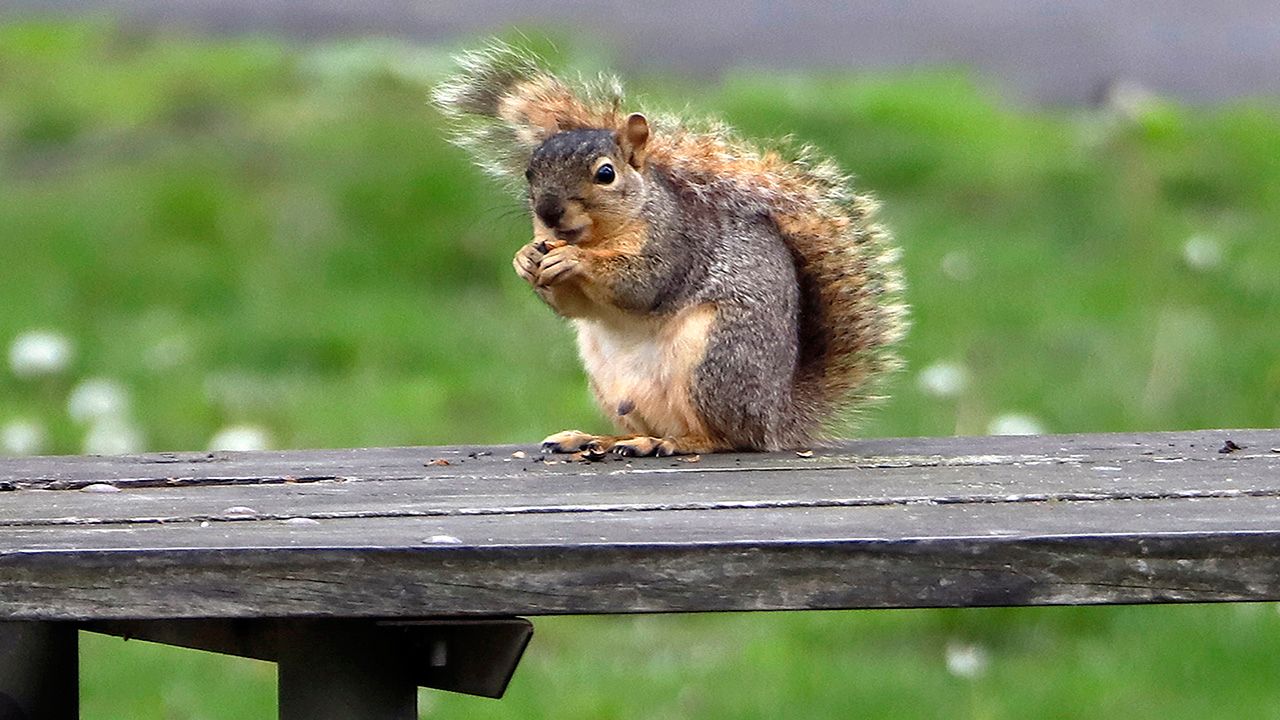COLUMBUS, Ohio — The Columbus Zoo and Aquarium announced the arrival of a female baby Bornean orangutan. It's the first of this critically endangered species born there in more than 60 years, the zoo said.
The baby was born on Nov. 28 to first-time mother, Khali, who the care team said is very attentive to her baby's needs.
Prior to birth, Khali was separated from the two other orangutans, 30-year-old Sulango and 49-year-old female, Dumplin. Sulango is the baby's father, and they're both among the oldest Bornean orangutans living in a U.S. zoo. The zoo explained orangutans are semi-social, in which interaction outside of breeding is limited between the females and males. The zoo said while they do well living together, they still enjoy their alone time.
The care team said introductions are taking place during the day if the apes choose to, but overnight, they will have their own space. The orangutans were all together for the first time on Dec. 2, to which the zoo said the introductions were successful. Dumplin and Sulango both showed interest in the newborn, but also respected Khali's space. The care team said Sulango, so far, has been a good father by being protective and gentle.
“Since the birth, Sulango has been frequently seen sitting in visual range of Khali and their new infant. Shortly after the pair was reunited, Khali approached Sulango and started to groom him. Sulango took this opportunity to calmly look at the baby, his first female offspring. Whenever he has the chance, Sulango can be seen catching glimpses of the baby, but he is always respectful of Khali and her privacy. Dumplin has been a bit more reserved, but she has also approached Khali and the baby and took a brief moment looking at the newest member of the family,” said Audra Meinelt, the Columbus Zoo and Aquarium’s curator of Congo Expedition and Orangutans.
Khali and Sulango's pairing was a recommendation from the Orangutan Species Survival Plan® (SSP), which is a program that helps "maximize the genetic diversity and increase the population sustainability of threatened and endangered species in professional care."
“We are incredibly proud to welcome the baby orangutan, and we are grateful to our dedicated Animal Care team, who have applied their expertise in all of the preparations over the last several years leading up to the breeding and birth. Not only is this adorable baby already stealing our hearts with her head full of reddish-brown hair and incredible, soulful eyes, but her birth is extremely significant for her species. We look forward to inviting our guests to come see her in the near future so they, too, can see the hope that she represents and be inspired to take action to help protect orangutans’ future,” said Dr. Jan Ramer, senior vice president of Animal Care and Conservation at the Columbus Zoo and Aquarium.
Borneans are the largest arboreal mammal, found in the Malaysian and Indonesian portions of the island of Boreno. The zoo said the orangutan population is estimated to be approximately 70,000 to 100,000 individuals. Over the past 20 years, the habitat has declined by more than 80%.









